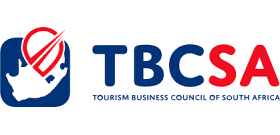 South Africa Launches Tourism Investment Summit to Drive Growth, Jobs, and Regional Transformation
South Africa Launches Tourism Investment Summit to Drive Growth, Jobs, and Regional Transformation
South Africa has taken a bold step to position itself as a premier destination for tourism investment with the opening of its inaugural Tourism Investment Summit at Investec in Cape Town. This landmark event, convened by the Department of Tourism in partnership with UN Tourism, the World Travel & Tourism Council (WTTC), and the Tourism Business Council of South Africa (TBCSA), is strategically timed as a precursor to the upcoming G20 Tourism Ministers’ Meeting in Mpumalanga province.
The summit brings together a carefully selected audience of global leaders, policymakers, investors, financiers, and tourism stakeholders, all focused on unlocking new opportunities for South Africa’s tourism sector. The event’s central aim is to assemble a robust pool of investors from both the public and private sectors, aligning tourism growth with the country’s broader economic development agenda and showcasing South Africa as a gateway to the continent.
Speaking at the opening, Tourism Minister Patricia De Lille emphasized the critical timing of the summit, noting that the industry is at a juncture where capital and targeted investments are essential for unlocking its full potential. “Today, we are putting before you eight flagship, bankable projects. These are projects from both the public and private sector, with strong return on investment and high community impact. And this is just a fraction of what lies in our national pipeline, which is rich, diverse, and growing. We stand here not only as a nation of immense tourism potential, but also as a gateway to Africa,” she stated.
Minister De Lille further highlighted the summit’s theme, “G20 Tourism Investment for Jobs, Growth, and Transformation,” underscoring that the focus extends beyond business to livelihoods and the broader transformation of South Africa and Africa as global tourism powerhouses. She called on investors present and those joining virtually to bring forward innovative ideas and models, urging, “Let us build tourism infrastructure that not only attracts visitors but uplifts communities and creates jobs.”
In his keynote address, UN Tourism Secretary General Zurab Pololikashvili praised the South African government for its proactive approach in convening the summit to attract the investment needed to propel the sector forward. He described South Africa as “one of the most attractive destinations for tourism investment,” and stressed that the summit provides a vital platform to explore the key topics necessary to attract foreign direct investment for sustainable tourism development, not only in South Africa but across the continent.
Pololikashvili also highlighted the broader impact of investment, noting that it goes beyond financing and infrastructure to include mobilizing resources for education and human capital development. This holistic approach is seen as essential for building a resilient and inclusive tourism sector that benefits all stakeholders.
The summit’s agenda is anchored on three strategic pillars that reflect the evolving priorities of the African travel industry:
Tourism Investment in Smart Cities and Digital Transformation: The focus here is on leveraging technology to enhance visitor experiences, streamline travel services, and support the growth of innovative tourism start-ups and small businesses. By embracing digital transformation, South Africa aims to create a more competitive and future-ready tourism sector.
Sustainable Tourism and Green Investments: Environmental responsibility is at the heart of the summit’s discussions, with an emphasis on conserving natural heritage, reducing carbon footprints, and promoting long-term resilience. Green investments are seen as key to ensuring that tourism growth does not come at the expense of the environment, but rather supports the preservation of South Africa’s unique landscapes and biodiversity.
Infrastructure Development for Competitiveness: Upgrading transport systems, hospitality facilities, and cultural attractions is essential for maintaining South Africa’s status as a globally competitive destination. Enhanced infrastructure will not only improve the visitor experience but also create new opportunities for local businesses and communities.
For Africa’s travel sector, the summit signals a shift towards a more integrated and investment-driven approach to tourism development. By aligning with global best practices and fostering regional collaboration, South Africa is setting a benchmark for how African destinations can attract capital, create jobs, and drive inclusive growth. The presence of high-level stakeholders and the unveiling of bankable projects underscore the country’s readiness to partner with investors seeking both financial returns and positive social impact.
As the continent prepares for the G20 Tourism Ministers’ Meeting, the outcomes of this summit are expected to influence policy discussions and shape the future of tourism investment across Africa. The focus on smart cities, sustainability, and infrastructure resonates with the broader trends shaping global tourism, positioning South Africa—and by extension, the region—as a leader in the next wave of tourism development.
For those in Africa’s travel industry, the message is clear: the future of tourism lies in strategic investment, innovation, and collaboration. By harnessing these forces, South Africa is not only enhancing its own competitiveness but also paving the way for a more prosperous and resilient tourism sector across the continent.
